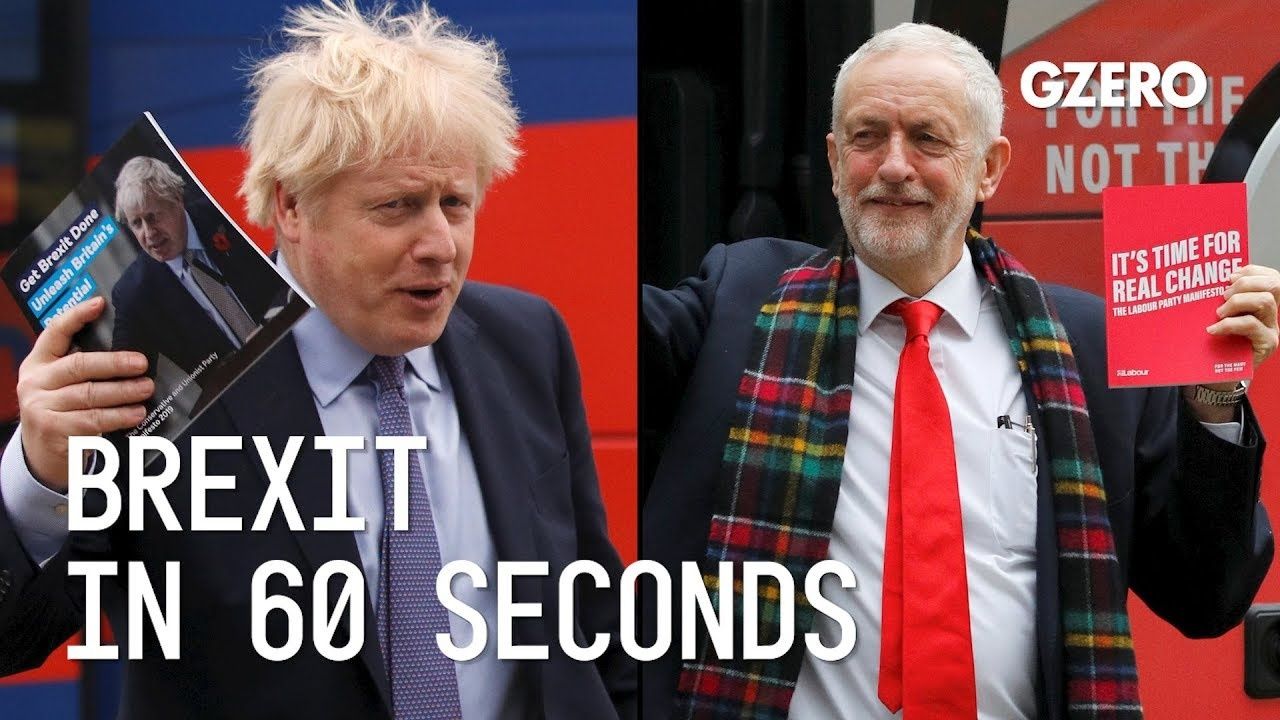In 60 Seconds
What are the differences between the Tory and Labour Manifestos?

What are the differences between the Tory and Labour Manifestos?

Lord William Hague:
What is the main difference between the manifestos, Conservative and Labour?
Obviously, a big difference is Brexit. The Conservatives say Brexit will happen on 31st of January. The Labour Party say, well, we'll have another referendum on Brexit, although we're not sure which side Jeremy Corbyn is gonna be on. But the big difference is on economics, the biggest we've ever seen between the two main parties.
The Conservative Manifesto is what I would call a pretty centrist manifesto on tax and spending. The Labour Manifesto is the biggest commitment to tax and spending we've ever seen from any political party, ever, fighting an election in Britain, 83 billion pounds a year extra. I think it's the most misleading, the most irresponsible document ever put before the people of Britain in a general election.
David Miliband:
The question this week is what are we to make of the two manifestos?
Obviously, they are chalk and cheese. They could not be more different in ideological content. But I want to draw attention to some other differences. The Tories aims to reassure. Labour tried to inspire. The Tories trying to narrow the policy agenda. Labour tried to broaden it. The Tories tried to avoid a repetition of last time. Labour tried to achieve a repetition of what they perceive to be the success of last 2017 manifesto, even though they lost the election. I think a week after the manifestos were published, hardly anyone's talking about them.
Last week, Microsoft announced it had surpassed its goal of expanding internet access to 250 million people worldwide, reaching more than 299 million, including over 124 million across Africa. The milestone underscores how connectivity is becoming a foundation for economic participation and geopolitical competitiveness in the AI era. Microsoft is evolving its approach to digital access to focus not only on coverage, but on adoption, enablement, and long-term participation in the AI economy, including a new collaboration with Starlink aimed at reaching rural and hard‑to‑reach communities. Read the blog to learn more.
Iranian pro-government protesters wave national flags while participating in an anti-war protest gathering against the U.S. and Israeli military attacks in Iran, in Tehran, Iran, on February 28, 2026.
The US and Israel struck several sites in coordinated attacks across Iran this morning. The total number of casualties across Iran is also unknown, though one of the missiles hit a girls’ school in Iran, reportedly killing 53 people.
The United States and Israel have launched massive military strikes on Iran. The stated goal: dismantle Iran’s nuclear program and ballistic missile capabilities. The unstated but increasingly clear objective: regime change. In this Quick Take, Ian Bremmer breaks down what this means.
The US and Israel have launched a series of strikes against Iran at a moment when the Islamic Regime is at its weakest. Ian Bremmer spoke with Iran expert Karim Sadjadpour in Munich earlier this month to understand the choices the regime and population are facing.